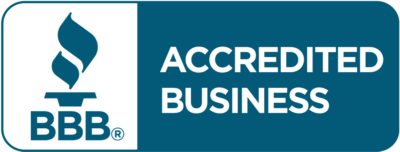Incentives, metrics, financing
Commercial Solar Resources
Commercial Tax Incentives
Discover federal, state, and local tax benefits that help offset solar installation costs and boost ROI.
Commercial Investment Metrics
Simplify complex financials to evaluate the long-term value of solar for your business.
Commercial Financing
Frequently Asked Solar Questions
Contact SolarTech Support
Phone
(619) 743 9193
sales@solartechonline.com
Commercial solar projects can be financed through several options: direct purchase (using cash or a business loan), Power Purchase Agreements (PPAs) where the business pays only for the power produced with no upfront cost, operating or capital leases, Property Assessed Clean Energy (PACE) financing that attaches to the property tax assessment, and specialized equipment financing. Each approach offers different benefits regarding ownership, tax advantages, cash flow impacts, and balance sheet treatment. The best option depends on the business’s financial goals, tax situation, and available capital.
Key incentives for commercial solar include the federal Investment Tax Credit (ITC), Modified Accelerated Cost Recovery System (MACRS) depreciation benefits, potential state tax credits, utility rebate programs, Solar Renewable Energy Certificates (SRECs) in some markets, and performance-based incentives. These can combine to offset a significant portion of system costs. Incentive availability and values vary by location, system size, and installation timing. Additionally, businesses with sustainability goals may capture indirect benefits through enhanced ESG (Environmental, Social, Governance) ratings.
Commercial solar installation best practices include thorough structural engineering assessment, proper roof penetration and sealing techniques, appropriate equipment selection for the specific commercial environment, strategic system design that maximizes production while maintaining roof access for maintenance, adherence to all applicable building and electrical codes, proper commissioning and testing protocols, and comprehensive staff training. Working with experienced commercial solar installers who understand commercial building requirements and have specific experience with your building type is essential for successful implementation.
Accurate solar ROI evaluation requires analyzing several factors: current and projected electricity costs, available incentives specific to your location and business type, realistic production estimates based on your facility’s specific conditions, appropriate maintenance costs, and potential revenue from additional services like demand response programs. The most accurate evaluations consider facility-specific factors like roof age, electrical infrastructure, and future operational plans. Financial analysis should include metrics such as simple payback period, internal rate of return (IRR), net present value (NPV), and cash flow impacts.
A comprehensive commercial solar RFP should include detailed facility information (roof age, condition, electrical infrastructure), historical energy usage data, project goals and constraints, specific technical requirements, insurance and warranty expectations, timeline requirements, evaluation criteria for proposals, and requested financing options. The RFP should request detailed information about the proposing company’s experience with similar projects, proposed equipment specifications, production guarantees, maintenance plans, and comprehensive pricing breakdowns. Well-structured RFPs result in more comparable proposals and better overall project outcomes.


